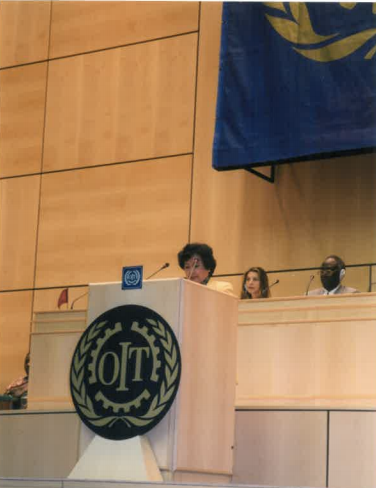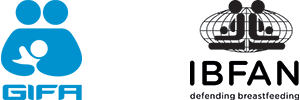
30/04/2022
Working mothers face a double challenge: to fully assume their maternal and nurturing role while maintaining their working capacity in order to remain effective and professionally integrated.
To reconcile breastfeeding and work, these working mothers must benefit from maternity protection measures guaranteed at the national level by laws in accordance with Convention No. 183 (2000) and Recommendation No. 191 of the International Labour Organization. Since the 1990s, GIFA has been committed to ensuring that such maternity protection measures are adopted and implemented in all countries around the world.
Maternity protection measures adopted by States should include, at a minimum, the following points:
- Comprehensive coverage of all women workers (including self-employed women, women working in the informal economy, women working in family businesses and women working part-time)
- Maternity leave of at least 24 weeks with a mandatory break during the 6 weeks after childbirth
- The guarantee of remuneration throughout the leave (amounting to 100% of the salary)
- The guarantee of free medical and paramedical checks and care during pregnancy, childbirth and breastfeeding
- Safe and healthy work during pregnancy and breastfeeding
- The guarantee to return to work at the end of maternity leave (labour protection)
- Protection against all forms of discrimination related to women’s reproductive role
- An environment that supports continued breastfeeding at the end of the leave through paid breastfeeding breaks
- Company policies enabling workers of both sexes to reconcile their family and professional responsibilities (parental leave, flexible hours, crèches, breastfeeding rooms, leave when children are ill, etc.)
The perinatal setting
WHO New recommendations (March 2022) stress urgency of both physical and mental health support in postnatal period
WHO advocates for quality care for women and newborns in the first crucial weeks after childbirth. The document is available in 6 languages. The new March 2022 recommendations highlight the urgent need for physical and mental health support in the postnatal period: care for the mother and newborn to make birth a positive experience.
The guidelines include 63 recommendations, 31 of which are new or updated. They are now the official WHO reference for all aspects of postnatal care.
Upload the Recommendations https://www.who.int/news/item/30-03-2022-who-urges-quality-care-for-women-and-newborns-in-critical-first-weeks-after-childbirth
Maternity protection into the overall Human rights context
From 2014 onwards, GIFA integrates its advocacy for optimal maternity protection into the overall Human rights context by sending targeted shadow reports to the Committee on the Elimination of Discrimination Against Women.
Indeed, maternity protection is by its very nature included in the range of rights protected by the Convention on the Elimination of All Forms of Discrimination against Women (CEDAW), in particular from the perspective of equality between men and women in employment (Article 11 CEDAW) and the right to health (Articles 12 and 14 § 2 let. b CEDAW and General Recommendation No 24 on women and health).
Our purpose is to convince the Committee to issue concluding observations to States parties subject to its periodic review urging them to respect, protect and fulfil the rights of working mothers through effective maternity protection measures in accordance with their international obligations as defined, inter alia, by ILO Convention 183 (2000) and the CEDAW Convention.
More Information
- IBFAN’s position on Maternity protection 2014
- List of ILO Conventions
- List of Conventions Ratifications
- ICESCR – International Covenant on Economic, Social and Cultural Rights, 1966
- CEDAW – Convention on the Elimination of All Forms of Discrimination against Women, 1979
- CRC – Convention on the Rights of the Child, 1989
- GIFA page on Maternity Protection in Switzerland see here
- Maternity and Health Insurance in Switzerland https://www.bag.admin.ch/bag/en/home/versicherungen/krankenversicherung/krankenversicherung-leistungen-tarife/Leistungen-bei-Mutterschaft.html
- Maternity Protection in the Canton of Geneva (In French)
